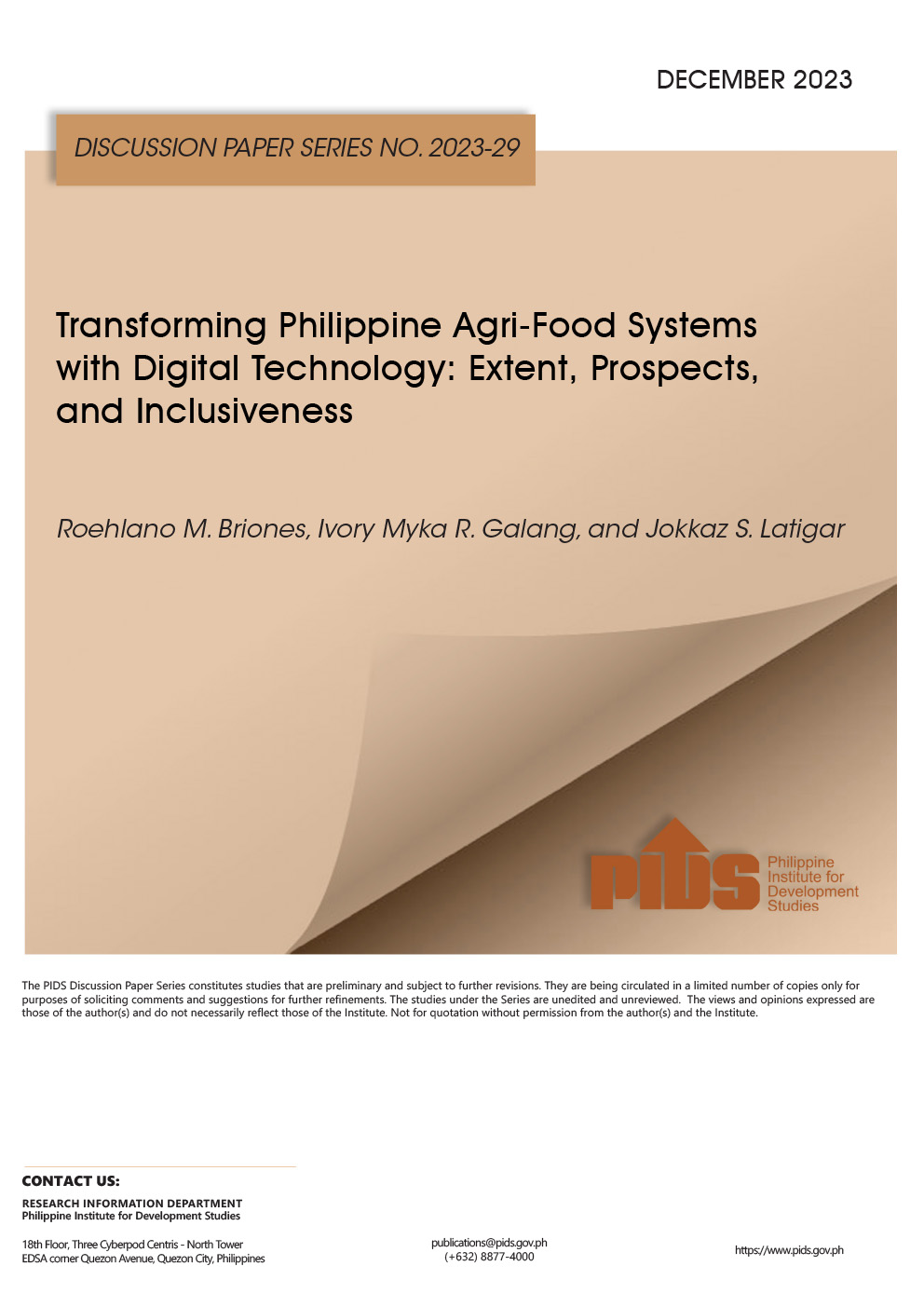A recent study on food security released by state think tank Philippine Institute for Development Study (PIDS) said the government's policy of rice self-sufficiency led to the unintended consequence of raising the price of rice.
Author Roehlano Briones, a senior research fellow of PIDS, explained that the policy, which is being "implemented in the name of food security, pushed up the price of rice to the detriment of the poor".
There are two strategies usually associated with achieving food self-sufficiency: support for domestic production and maintaining protectionist barriers that "shield local producers from foreign competition". Between the two, Briones pointed out that the barriers to imports are responsible for triggering price hikes.
A ban will lead to shortages," explained Briones, forcing the responsibility of supply solely on the domestic industry. As the cycle goes, a ban leads to shortages and causes prices to soar, but also, as Briones pointed out, "stimulating domestic production, stifling off some of the demand, while stimulating more production".
Ideally, shortages are eventually eliminated and self-sufficiency is eventually attained. But at a higher price paid by the consumers, said Briones.
There are real consequences to rising prices in basic commodities like rice. As in many things, the poorest and the most vulnerable are the hardest hit.
"Statistical analysis relating regional stunting rates to regional per capital incomes and food prices finds that, as the price of rice increases, the rate of childhood stunting increases," said Briones. "High prices cause more malnutrition."
Down the line, malnutrition is only going to develop into long-term adverse consequences of poor cognition and educational performance, low adult wages, and low productivity.
Briones argued: "The Philippine government did the right thing in pursuing production support for rice. It shifted support away from ineffective and wasteful fertilizer and seed subsidy programs."
The complementary increase in the budget for production support helped. Overall, Briones said the interventions were "on the right track" to promote food security by enhancing domestic production capacities.
But what the government needs to revisit now are the failures and the rise in prices caused by maintaining restrictive policies.
Briones recommended repealing Republic Act 8178 exempting rice from tarrification, repealing the National Food Authority import monopoly, and opening rice importation to the private sector. He also underlined the important role of the executive in defining an informed tariff policy. (PIDS)
PH Government's food self-sufficiency approach drove up food prices--PIDS study












